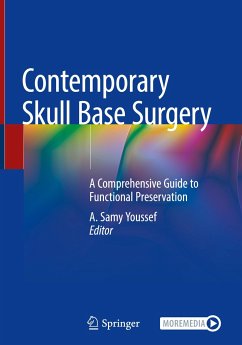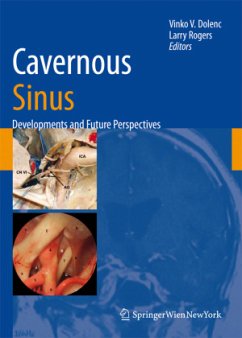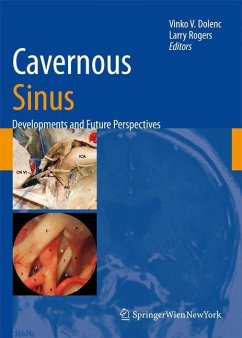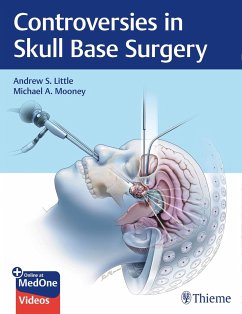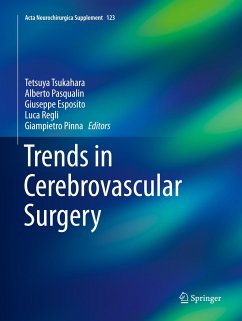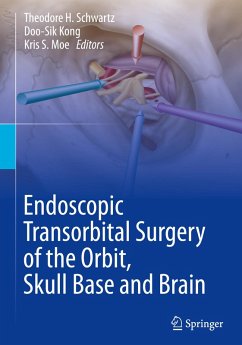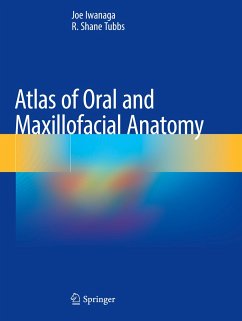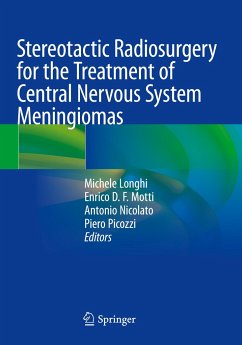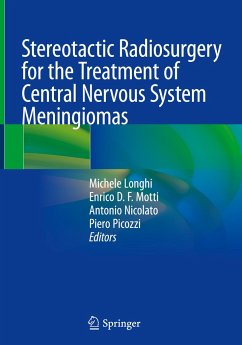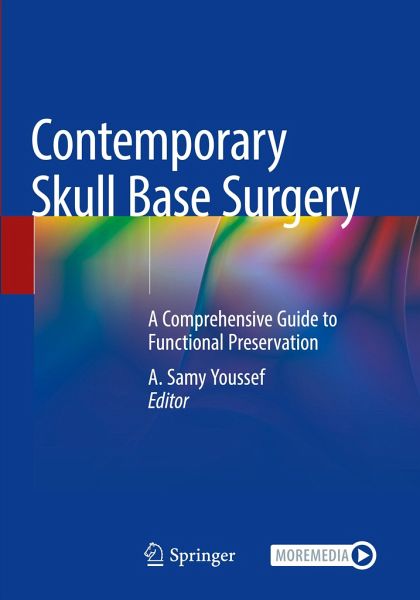
Contemporary Skull Base Surgery
A Comprehensive Guide to Functional Preservation
Herausgegeben: Youssef, A. Samy
Versandkostenfrei!
Versandfertig in 6-10 Tagen
121,99 €
inkl. MwSt.

PAYBACK Punkte
61 °P sammeln!
This text is designed to function as a comprehensive guide/companion that will not only facilitate the decision-making process for the surgeon, but also help young surgeons build a successful career in skull base surgery. It is divided into six main sections:The first section details the general principles that every skull base surgeon needs to be acquainted with - skull base anatomy, developing a multidisciplinary skull base team, operating room equipment, surgical instruments, and modern imaging technologies. These are the key elements that play a major role in optimizing functional outcomes...
This text is designed to function as a comprehensive guide/companion that will not only facilitate the decision-making process for the surgeon, but also help young surgeons build a successful career in skull base surgery. It is divided into six main sections:
The first section details the general principles that every skull base surgeon needs to be acquainted with - skull base anatomy, developing a multidisciplinary skull base team, operating room equipment, surgical instruments, and modern imaging technologies. These are the key elements that play a major role in optimizing functional outcomes and patients' quality of life. Following this, the compartmental anatomy chapters set the stage for understanding the technical and surgical nuances of each location.
The subsequent five sections are organized as anatomical compartments or regions of the skull base. Every region is organized in the same format for uniformity and ease of use. Each section includes the available treatment choices to each compartment, and describes the relevant pathologies. The contribution of worldwide leaders including neurosurgeons and otolaryngologists provides top-level expertise in how to tackle each pathology.
The surgical approaches chapters that lead each anatomical section describe operative techniques in a clear. stepwise fashion with accompanying intra-operative photos and surgical videos. In the individual pathology chapters, different pathological subtypes are described with representative radiographic images of clinical case examples. Accompanying each pathology is a treatment algorithm based on tumor morphology, pre-operative clinical status, and the goal of maximum functional preservation with a brief description of surgical approaches. This will serve as a roadmap that will help the reader to easily reach a decision of how to treat each skull base pathology.
The general theme is functional and anatomical preservation of key neurovascular structures. Setting such structures as a target and planning an approach that minimizes iatrogenic damage to these structures will lead the surgeon down the road of either open, endoscopic, or a combination of both approaches.
A comprehensive book that is versatile to serve as a handbook as well as a detailed reference for skull base surgery does not currently exist. In addition, combining the two main surgical schools represented by endoscopy and open surgery into one reference enhanced by treatment algorithms is another unique feature.
The first section details the general principles that every skull base surgeon needs to be acquainted with - skull base anatomy, developing a multidisciplinary skull base team, operating room equipment, surgical instruments, and modern imaging technologies. These are the key elements that play a major role in optimizing functional outcomes and patients' quality of life. Following this, the compartmental anatomy chapters set the stage for understanding the technical and surgical nuances of each location.
The subsequent five sections are organized as anatomical compartments or regions of the skull base. Every region is organized in the same format for uniformity and ease of use. Each section includes the available treatment choices to each compartment, and describes the relevant pathologies. The contribution of worldwide leaders including neurosurgeons and otolaryngologists provides top-level expertise in how to tackle each pathology.
The surgical approaches chapters that lead each anatomical section describe operative techniques in a clear. stepwise fashion with accompanying intra-operative photos and surgical videos. In the individual pathology chapters, different pathological subtypes are described with representative radiographic images of clinical case examples. Accompanying each pathology is a treatment algorithm based on tumor morphology, pre-operative clinical status, and the goal of maximum functional preservation with a brief description of surgical approaches. This will serve as a roadmap that will help the reader to easily reach a decision of how to treat each skull base pathology.
The general theme is functional and anatomical preservation of key neurovascular structures. Setting such structures as a target and planning an approach that minimizes iatrogenic damage to these structures will lead the surgeon down the road of either open, endoscopic, or a combination of both approaches.
A comprehensive book that is versatile to serve as a handbook as well as a detailed reference for skull base surgery does not currently exist. In addition, combining the two main surgical schools represented by endoscopy and open surgery into one reference enhanced by treatment algorithms is another unique feature.



